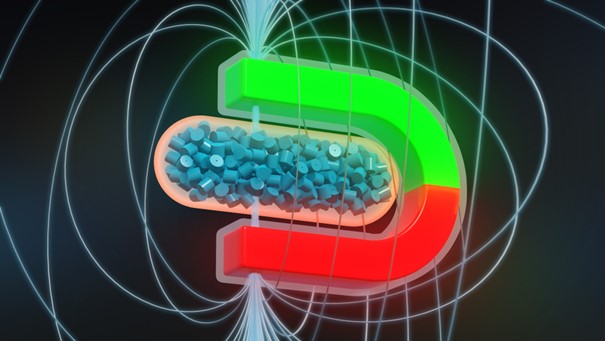In a joint project, the Fraunhofer EZRT and the SKZ Plastics Center are investigating the use of high-temperature NMR (nuclear magnetic resonance) for plastics analysis. The project is funded by the Federal Ministry for Economic Affairs and Climate Protection on the basis of a decision by the German Bundestag.
The aim of this project is to demonstrate the feasibility of NMR measurements up to 300 °C and thus provide industry and SMEs in particular with improved quality control and thus a competitive advantage. In addition to technical thermoplastics, thermosets will also be examined in detail over the next two years and a material database will be compiled.
In future, the new measurement and evaluation methods of high-temperature NMR will achieve results comparable to those of established thermal analysis methods. In addition to significantly shorter measurement times, the new high-temperature NMR offers decisive advantages over previous methods, such as the elimination of time-consuming sample preparation and the ability to analyze larger sample quantities in each individual measurement.
